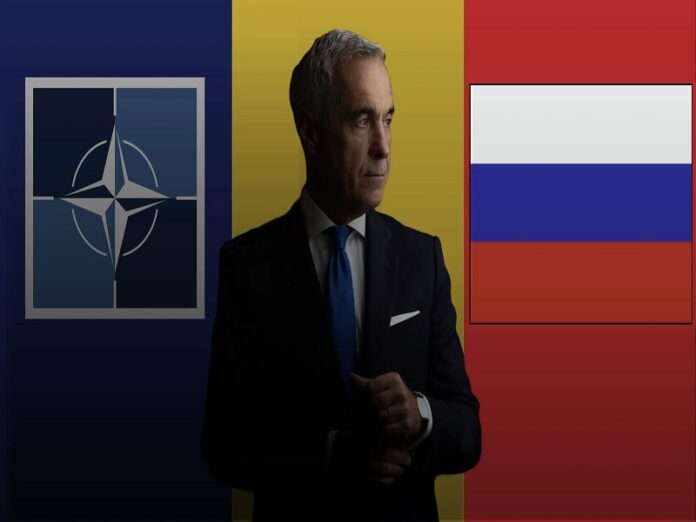The surprise victory of populist conservative-nationalist Calin Georgescu in the first round of Romania’s presidential election gives this heterodox outsider the chance to enter into office next month. The Mainstream Media is apoplectic since he criticized Romania’s hosting of the US’ missile defense infrastructure and is against perpetuating NATO’s proxy war on Russia through Ukraine. He’s also a devout Orthodox Christian and praised some of his country’s most controversial World War II-era figures.
Interestingly, he was also the diaspora’s favorite, with the added twist being that more in Western Europe voted for him than those in Eastern Europe. This suggests that his appeal is also due to the hope that he’ll bring long-overdue accountability to his infamously corrupt country and finally help its people improve their living standards through more effective economic, financial, and developmental policies. Foreign policy is important, but local issues and economics far outweigh the former for average voters.
If Georgescu becomes President of Romania, he’s therefore much more likely to try to change his country’s internal workings than he is to radically transform its foreign policy, but it also can’t be ruled out that his potential victory could adversely affect NATO’s proxy war on Russia through Ukraine. Those who voted for him dislike how Ukrainian grain flooded their domestic market to local farmers’ detriment and also aren’t pleased with the government financially supporting Ukrainian refugees.
Additionally, the latest military-strategic developments in this conflict raised worries among many about the spectre of World War III, in which case Romania would be directly involved due to its hosting of the previously mentioned US missile defense infrastructure. Their country also plays an important logistical role in arming Ukraine and its newly built “Moldova Highway” could facilitate the deployment of NATO troops there if the bloc or a “coalition of the willing” therein decides to conventionally intervene.
Even if Romania doesn’t dispatch troops, the transit role that it could play in others’ intervention there could put a Russian target on its back, especially if this leads to direct NATO-Russian hostilities. For this reason and keeping in mind his criticism of NATO’s proxy war on Russia through Ukraine, he as Supreme Commander might not approve of these plans. After all, he’s a populist conservative-nationalist who prioritizes what he sincerely believes to be national interests, which this scenario is contradictory to.
If he wins, then he’ll assume office on 21 December, which could therefore make it impossible for the US to rely on Romania in the abovementioned respect from there on out. That would be significant, provided that Georgescu has the political will to implement such a policy, since it means that the outgoing Biden Administration might thus only have less than a month to do this if it wants to. After all, even if Trump decides to “escalate to de-escalate” through such means, he too might not be able to.
There’s always the possibility that Poland might serve as the only route through which conventional NATO troops could enter Ukraine, even if it doesn’t dispatch its own, but neither the outgoing conservative-nationalist president nor his liberal-globalist rivals in the ruling coalition might allow this. The reason is that both want to appeal to Ukro-skeptical voters ahead of next year’s presidential election, the first in order to keep the second in check while the second wants to finally be unrestrained.
That’s why each have been trying to outdo the other in populist rhetoric, with the ruling coalition even going as far as to trump the former conservative-nationalist government of which the outgoing president is a part by taking an even harder line towards Ukraine. To that end, they demanded that it exhume and properly bury the Volhynia Genocide victims’ remains like it earlier did for 100,000 Wehrmacht troops, and it’s now only offering more military aid in exchange for a loan and no longer for free.
In fact, one of the Deputy Prime Ministers went as far as accusing Zelensky of wanting to provoke a Polish-Russian War in Ukraine, which powerfully signals that the ruling liberal-globalist coalition isn’t really interested in facilitating a conventional NATO intervene there and thus can’t be relied on for this. If Romania is ruled out in this respect too should Georgescu win, assume office next month, and promulgate the proposed policy, then the US might therefore be more willing to cut a deal with Russia.
Therein lies the most globally significant consequence if this populist conservative-nationalist becomes President of Romania since it could greatly limit the ways in which the US – whether under the outgoing Biden Administration or the incoming Trump one – could “escalate to de-escalate” on more of its terms. By removing the likelihood of a conventional NATO intervention, the odds might then greatly increase for Russia ending this conflict on more of its own terms instead, which could lead to a more lasting solution.
